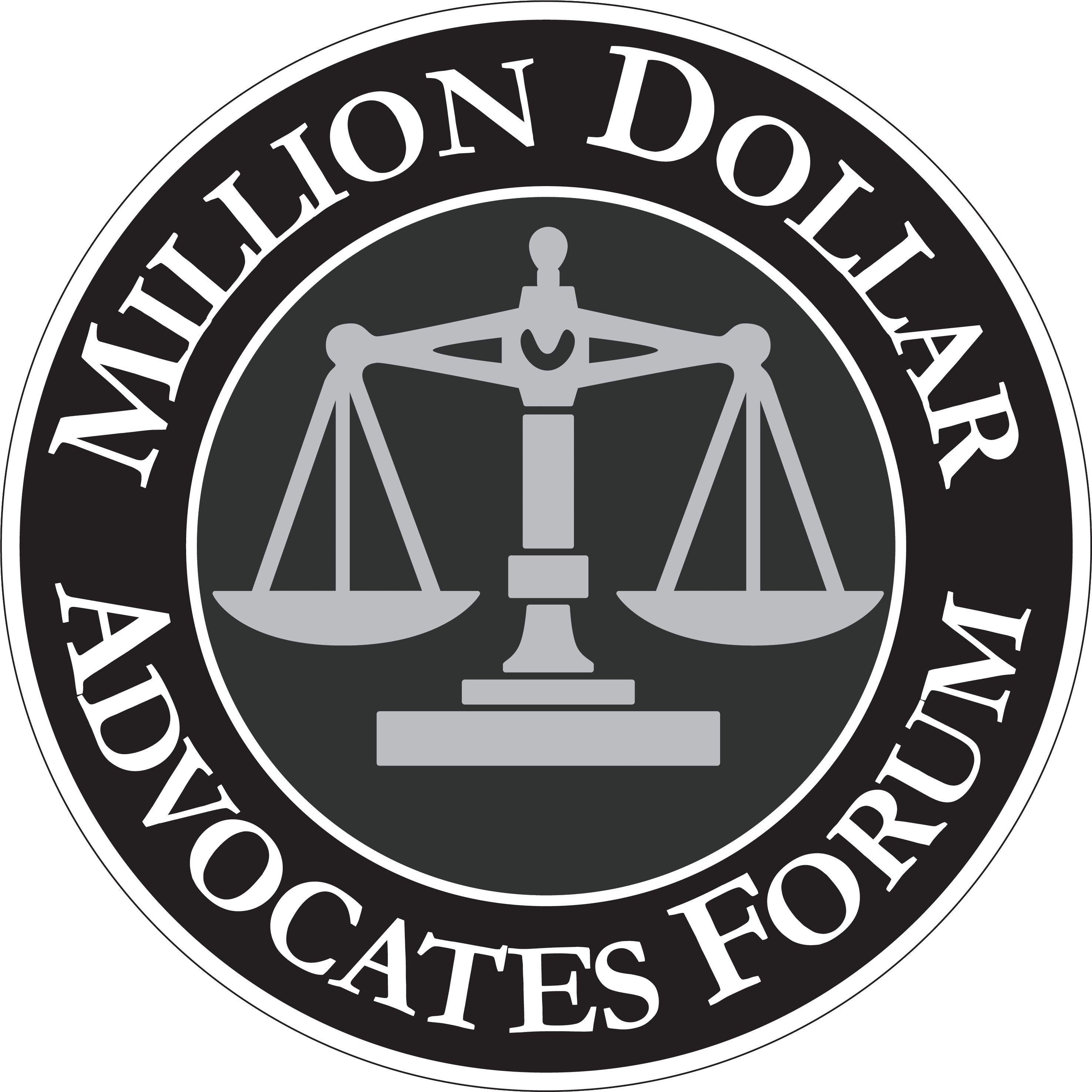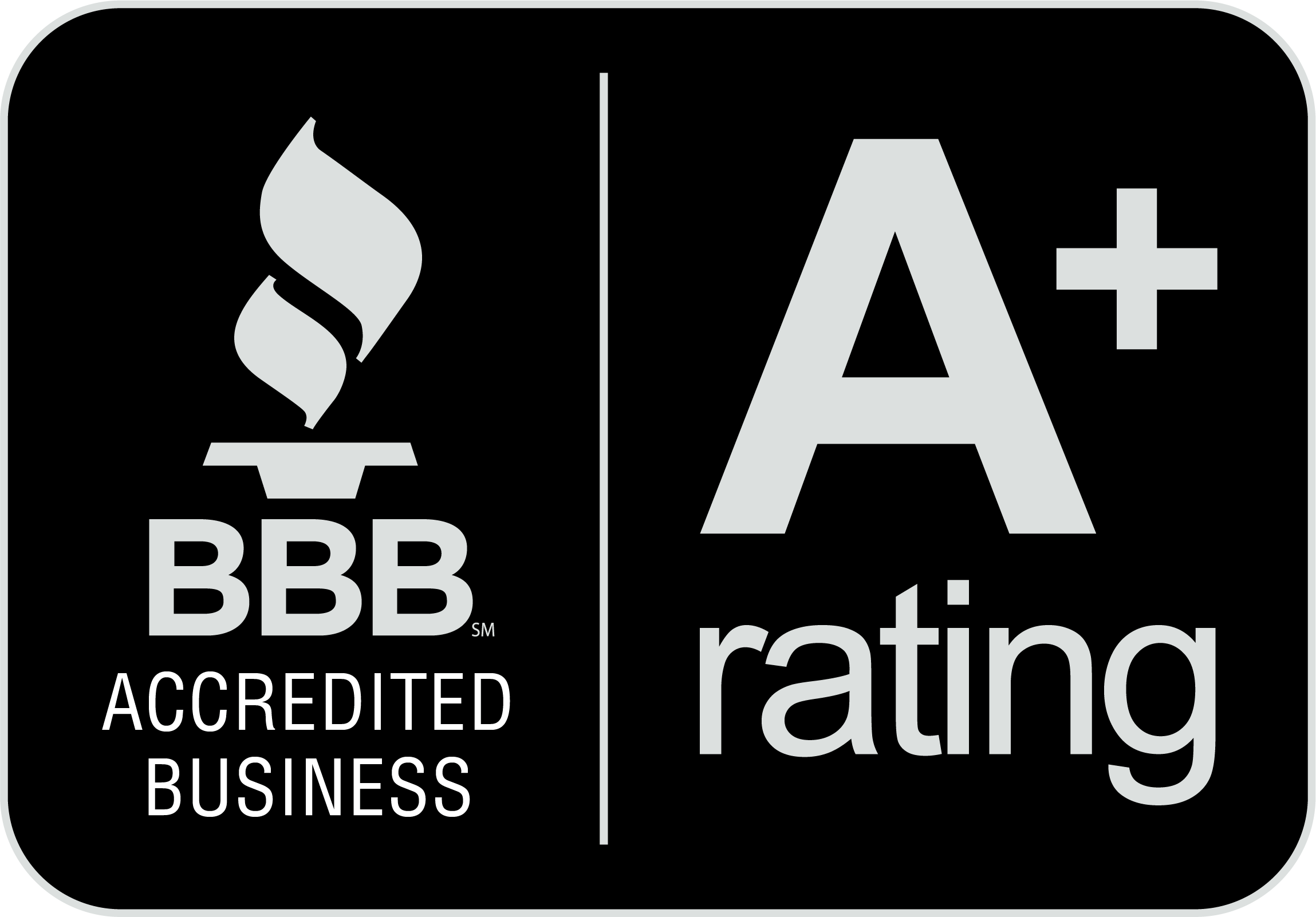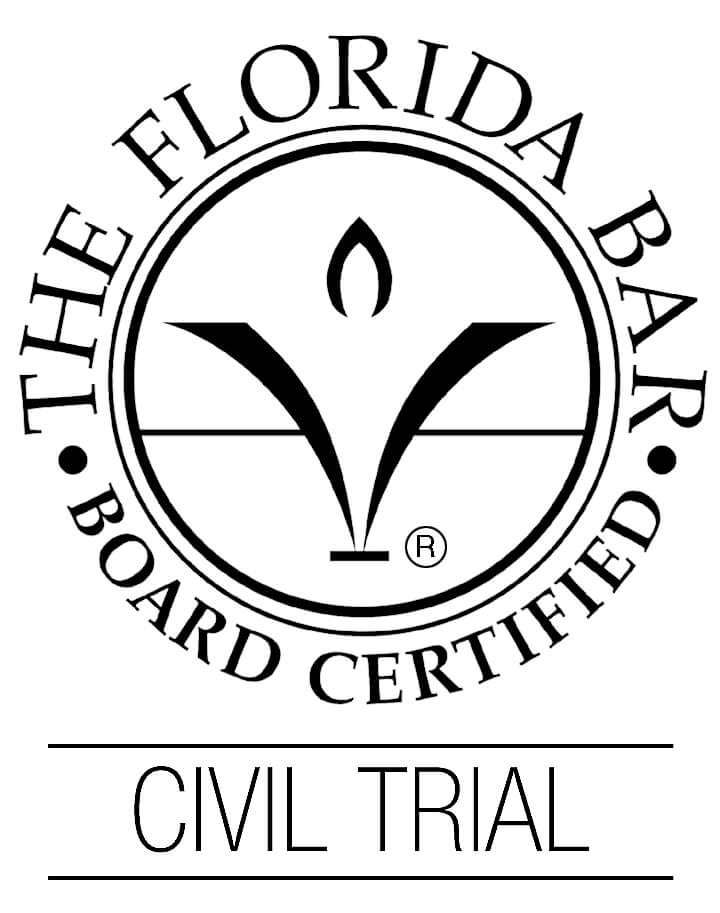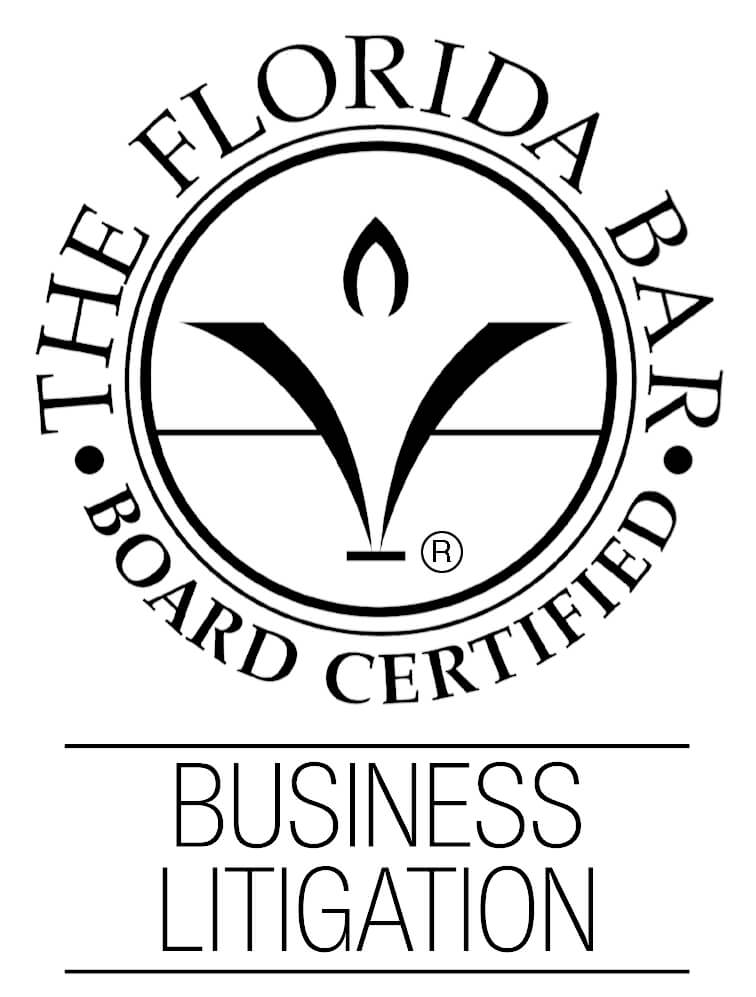Home Owners' Insurance
Homeowners Insurance
Owning a home in the Sunshine State offers sunshine, warmth, and community, but it also brings risk. Our unique location, while beautiful, is exceptionally prone to storms, fires, and unexpected accidents, which can upend years of investment and memories in an instant.
When disaster strikes, you count on your insurance company to step up, honor the promise you’ve paid for, and help you put the pieces back together. But all too often, insurers make the recovery harder, not easier, delaying claims, undervaluing damages, or denying help when you need it most.
At The Nation Law Firm, we know how frustrating it can be to find that your safety net has become an obstacle holding you back. Our team has spent decades helping Florida homeowners protect their rights, hold insurers accountable, and move forward with strength and peace of mind – and we’re here to help you too.
If you’re facing a dispute, a delay, or a denial, you don’t have to accept it. Get started with our team today with a free case evaluation.
Common Types of Damage Covered by Homeowners’ Insurance
Most Florida homeowners’ policies cover a wide range of sudden, unexpected damages that threaten the safety, structure, and livability of your home.
Typically covered damages include:
- Wind Damage:High winds from hurricanes, tropical storms, or thunderstorms can tear off roofing, shatter windows, and weaken structures.
- Hail Damage:Hail can dent roofs, break skylights, damage siding, and damage the integrity of your home’s exterior.
- Fire Damage:Most policies cover electrical faults, wildfires, or accidents, fire damage to your home and personal property
- Water Damage (Non-Flood):Sudden leaks from burst pipes, broken appliances, or water heater failures are often included, though flooding from external sources requires separate coverage.
- Theft and Vandalism:Homeowners’ policies typically cover stolen property, broken windows, and other damages caused by criminal acts.
- Falling Objects:Damage from falling trees, limbs, or debris during storms is usually covered under the dwelling protection portion of your policy.
While these categories seem straightforward, insurance companies often try to blur the lines. They may claim certain damage is excluded, pre-existing, or less severe than it truly is, shifting the financial burden onto you.
If your provider isn’t honoring their end of your contract, our team can help you fight back against their decision.
What Homeowners’ Insurance Policies Typically Exclude
Homeowners’ insurance doesn’t cover everything. Understanding what’s excluded from your policy is just as important as knowing what’s included, especially in Florida, where natural disasters and weather extremes create unique grey areas.
Some common exclusions in standard Florida homeowners’ policies include:
- Flood Damage:Water damage from rising water levels, storm surges, and flash floods isn’t covered under standard homeowners’ insurance. Separate flood insurance is needed through private carriers or the National Flood Insurance Program (NFIP).
- Intentional Acts:Any damage that’s purposefully caused by the homeowner or residents of the home is excluded from coverage.
- Wear and Tear:Gradual deterioration, like roof aging, foundation settling, or mold growth from long-term neglect, is typically excluded unless it results from a covered, sudden event.
- Earthquake Damage:Earthquakes and ground movement are not covered under standard policies.
- Certain Types of Water Damage:Sewer backups, sump pump failures, or slow leaks over time may be excluded unless you purchase additional coverage.
Insurance companies often use these exclusions broadly, and sometimes unfairly, to deny your rightful claim. If they do, our team is a phone call away, ready to help you prepare for your next steps and clear up the truth.
6 Steps to Take When Filing a Homeowners’ Insurance Claim
Filing a claim can feel overwhelming, but the actions you take in the first few hours and days can have a major impact on whether your claim is approved, delayed, or denied.
Here are the steps you should take:
- Document the Damage Immediately:Take detailed photos and videos of all visible damage, from structural issues to damaged belongings. Include timestamps if possible, and make copies of all your records.
- Protect Your Property from Further Loss:Make temporary repairs to prevent additional damage, like tarping a roof or shutting off water sources. Save all receipts for materials or emergency services, as many policies reimburse these costs.
- Contact Your Insurance Company Promptly:Notify your insurer as soon as possible with a phone call or online claim, ideally within 24 to 48 hours of the incident. Ask about your coverage, deductible, and what documentation they require upfront to avoid delays and misunderstandings.
- Review Your Policy Carefully:Read your full policy to understand your coverage limits, exclusions, and what documentation the insurer may try to use to reduce or deny your payout.
- Keep a Record of All Communications:Log every phone call, email, and letter. Write down who you spoke with, what was said, and the date/time. This record can be invaluable if there’s a dispute.
- Ask Questions (and Don’t Be Rushed):You can ask questions at any point from filing your claim forward. Status updates, questions about policy guidelines or offers, and copies of documents are all items that you should ask for if needed.
If you’ve followed every step and the process still isn’t working the way it should, you don’t have to keep fighting it alone. The Nation Law Firm can advocate for your rights to the fullest extent of Florida’s law, bringing you the best outcome as soon as possible.
Challenges in Homeowners’ Insurance Claims
Following the rules, providing all necessary documentation, and meeting every deadline doesn’t ensure that your provider will handle your claim swiftly. Too often, homeowners face more resistance from their insurance company than from the storm, fire, or event that caused the damage in the first place.
Some of the most common challenges include:
- Delays in communication or processingslow down repairs and leave families living in unsafe conditions.
- Underpayment of valid claims, often based on incomplete assessments or low estimates that don’t reflect the full scope of the damage.
- Unexplained denials, where the insurer points to a vague clause in your policy or claims the damage falls under an exclusion without offering evidence.
- Disputes over coverage, especially when damage could fall under more than one policy, like windstorm versus flood insurance.
- Pressure to settle quickly, with insurers urging homeowners to accept less than they’re owed before the full cost of repairs is even known.
If you face the same obstacles, the law gives you the right to challenge them. If your claim has stalled or been undervalued, we can help you take the next step.
How to Dispute a Denied Claim
A denied claim can feel like a dead end. But, under Florida law, it’s not the final word. You have the right to challenge the decision and push back when an insurance company refuses to pay what you’re owed.
Here’s how to take action if your claim is denied:
- Review the Denial Letter and Your Policy Together:Insurers must provide a written explanation for why your claim was denied. Read it closely, then compare it to your actual policy language to identify errors or inaccuracies that support your claim.
- Gather Supporting Documentation:Build your case with photographs, video evidence, repair estimates, expert assessments, and written communications. The more complete your file, the more pressure you place on the insurer to justify its decision.
- File a Formal Appeal:Most policies give you the right to appeal a denial internally. Use this opportunity to address their reasoning directly, submit additional evidence, and request a fair second review.
- Consider Legal Action if the Appeal Fails:If the appeal is denied or mishandled, you may be eligible to pursue legal action. In some cases, this can result in full payout of your claim plus additional damages.
Since 1997, The Nation Law Firm has helped thousands of Florida residents handle the dispute process. If your claim was denied unfairly, we’re here to help you challenge it.
The Importance of Understanding Your Policy
Insurance policies are written to protect you, but they’re often written in a way that’s difficult to understand. That confusion can work in the insurer’s favor, especially after a loss when quick decisions matter most. Knowing what’s in your homeowners’ policy takes away their ability to confuse or surprise you.
Most Florida homeowners’ policies include coverage for wind, fire, and theft, but exclude major risks like flood damage and earthquakes unless you’ve added extra protection. Many also carry hurricane-specific deductibles that are higher than standard ones, which can significantly affect your payout.
Your policy also outlines your responsibilities in the event of a loss. You may be required to report damage quickly, prevent further harm, and submit documentation within certain deadlines, so make sure to know your coverage and act quickly.
If you’re unsure how your coverage applies or whether your insurer is interpreting it fairly, The Nation Law Firm can help you review your policy and protect your rights.
Natural Disaster Claims and Unique Considerations in Florida
Natural disaster claims in Florida are rarely simple. With hurricanes, tropical storms, and widespread flooding, it’s common for damage to trigger more than one part of your policy or require a separate policy altogether, which can often be confusing.
For example, your homeowners’ insurance might cover wind damage to your roof, while a separate flood policy is required to cover storm surge or rising water. Add in a hurricane deductible, shortened filing deadlines, and the state’s frequently changing insurance laws, and even straightforward claims can spiral into delays and denials.
To recover fully, you need to know what coverage applies, what deadlines you’re up against, and how your insurer may try to shift responsibility. Our team can help you understand your coverage and, if it’s being delayed or denied unfairly, push back against bad faith behavior.
How Attorneys Help in Homeowners’ Insurance Disputes
When an insurer delays or underpays your claim, having a law firm like ours on your side levels the playing field. You don’t have to fight through vague policy language or pressure tactics alone because we’re standing right next to you, already one step ahead of unfair practices.
We know how to hold insurers accountable under Florida law, challenge lowball offers, and present the evidence needed to maximize your recovery. Let the Nation Law Firm take on the stress of the claim, so you can focus on moving forward.
We’ve helped Florida homeowners resolve claim disputes with clarity, confidence, and no upfront cost for over 20 years. If your insurer isn’t playing fair, we’re here to make sure they do.
Documenting and Proving Your Claim
Clear documentation can make or break your homeowners’ insurance claim. Here are the essentials, along with why each one matters.
- Photos and Videos of the Damage:Capture clear images from multiple angles. Visual proof makes it harder for the insurer to dispute the extent or cause of the damage.
- Receipts for Repairs and Replacements:Save all receipts for emergency fixes, contractor visits, and item replacements to verify the cost of your losses and support full reimbursement.
- Professional Estimates and Inspection Reports:Independent assessments from licensed professionals add credibility to your claim and help counter lowball offers.
- Copies of All Communication with Your Insurer:Keep a detailed record of emails, letters, and phone calls. This paper trail helps protect you if the insurer misrepresents what’s been said or agreed upon.
- Receipts for Temporary Living Expenses:If you’re displaced, save hotel, food, and relocation receipts. These may be covered under your Additional Living Expenses (ALE) policy benefit.
A well-documented claim leaves less room for delay, denial, or dispute. If you’re unsure what to include or what your insurer is allowed to ask for, The Nation Law Firm can help guide you through it.
Frequently Asked Questions
What types of damages are typically covered by homeowners’ insurance policies?
Most policies cover damage from fire, wind, hail, theft, vandalism, and certain types of water damage, like burst pipes. Some additional risks may be covered through policy endorsements or separate policies.
What should I do immediately after damage occurs to my home?
Start by documenting the damage with photos and video and taking steps to prevent further loss. Then, contact your insurer as soon as possible to begin the claims process.
How do I file a homeowners’ insurance claim?
Notify your insurer promptly, provide documentation of the damage, and follow any specific steps outlined in your policy. Be sure to track all communications and keep copies of everything you submit.
What should I do if my insurance company denies my claim?
Review the denial letter carefully, compare it with your policy, and gather any missing or additional evidence that may strengthen your case. If the denial feels unjustified, you may have the right to appeal or take legal action.
What are the most common reasons for homeowners’ insurance claim denials?
Claims are often denied due to policy exclusions, missed deadlines, alleged lack of documentation, or disputes over whether the damage is covered under a specific clause.
How can I dispute an undervalued or delayed insurance claim?
You can request a reinspection, submit your own repair estimates, and escalate the issue through a formal appeal. Legal support may help if the insurer refuses to negotiate fairly.
What is bad faith in insurance claims, and how can I recognize it?
Bad faith occurs when an insurer delays, denies, or underpays your claim without a valid reason. Signs include vague explanations, ignored evidence, and repeated delays without cause.
Does homeowners’ insurance cover damages caused by hurricanes or floods?
Wind damage from hurricanes is typically covered, but flood damage is not unless you have separate flood insurance. Florida policies often include special hurricane deductibles as well.
How can an attorney help with a homeowners’ insurance dispute?
An attorney can interpret policy language, challenge unfair denials or low offers, and negotiate directly with the insurer. If needed, they can also take legal action to recover full compensation.
What evidence is most important for proving my claim?
Photos and videos of the damage, repair estimates, receipts, expert assessments, and a written log of all communications with your insurer are all key to supporting your claim.






.svg)
